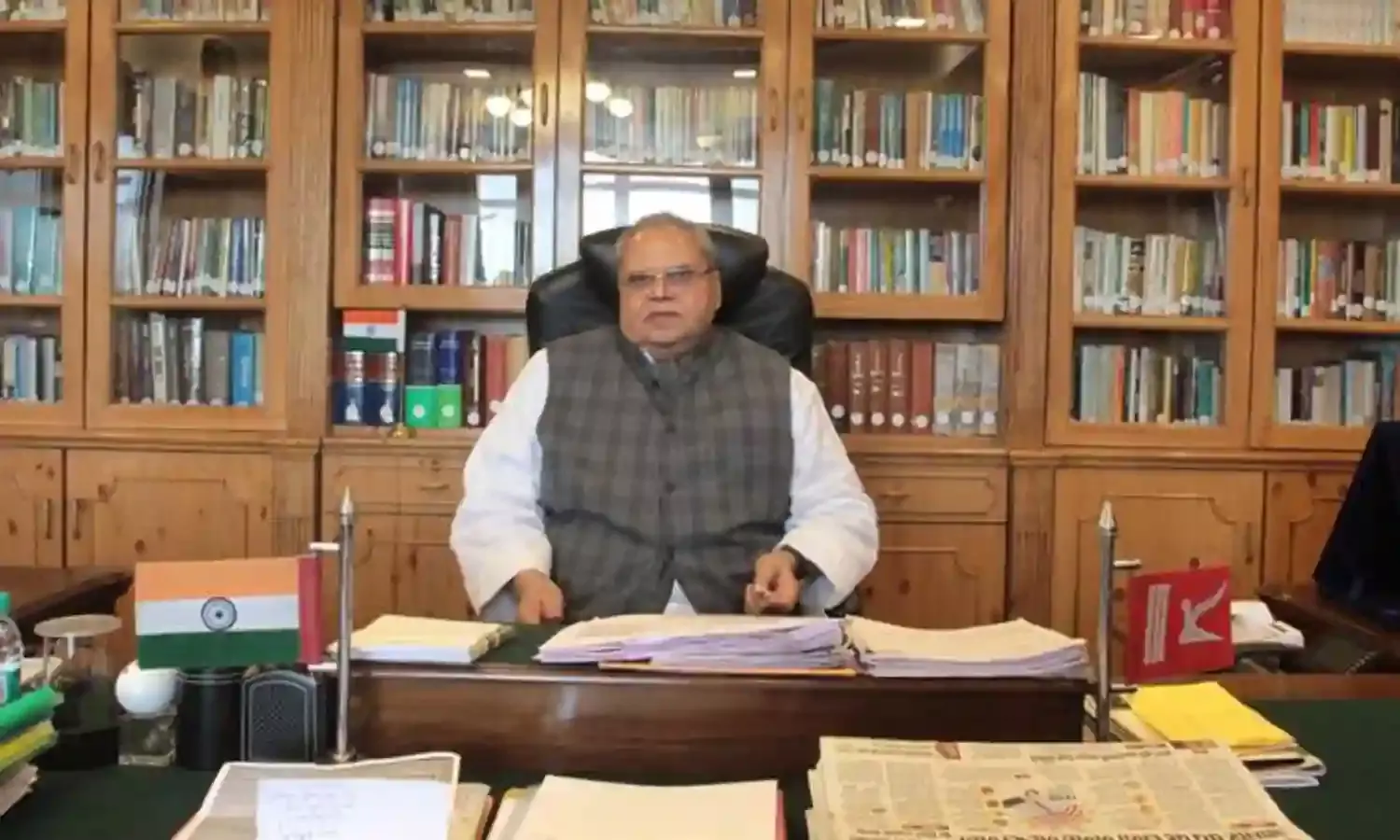Good Cop, Bad Cop...Or Is There More?
J&K Governor Satya Pal Malik

Jammu and Kashmir Governor Satya Pal Malik sought to strike a new tone---away from the belligerence of the last years---in an interview with the Indian Express. But somehow, instead of the reach out that he probably hoped to have affected, his words sounded strangely disconnected from the reality of Jammu and Kashmir today. Almost like a blast from a distant past, to use the slang, where similar words were spoken by leaders from Delhi. I am not for wiping out militants, but for wiping out militancy; My doors are open for talks with everyone, even Hurriyat without Pakistan condition; Article 35-A is just posturing; Demonising Kashmir does not work for any one; We have to get the youth back.
Words that in the ceaseless hostilities that have impacted on every other home in Kashmir, sound very good. At least to those sitting away from the Valley. The Governor comes across as a reasonable, political leader with a good assessment of the situation. As he probably is. But to the youth in Kashmir he is far removed from the ground where militancy has grown by leaps and bounds in the last years. And where the Governor is absolutely spot on when he says that for every militant killed, five emerge. The difference is that he says this could happen, whereas actually it has happened. And as the Kashmiris know, and whisper, militancy has entered every home. The anger is huge, with the military operations increasing the alienation. Fear too is palpable and jostles for space with anger.
The death of political workers by militants, or the abduction and murder of policemen, impacts also on Kashmiri homes. And creates fear, sorrow but anger that is directed not at the militants but at those seen responsible for stoking the militancy. The PDP-BJP government has turned the clock back in Jammu and Kashmir, to a point where rape and murder is justified, as is the use of force with the youth about whom the Governor has expressed concern, is specifically targeted.
Governor Malik has outlined a four point agenda in his interview. First to reach out to the people, two to make them believe I am one of them, three to remain available to them, and four to complete economic development projects that were started within a year. The Governor has been an astute politician from Uttar Pradesh’s western Jat belt, has had a long innings in government and opposition, and is well regarded for his intellect. Hence, it is difficult to believe that he believes what he has said in the interview. And is basically indulging in rhetoric to build an image that presents a contrast to what has come to pass as government in Kashmir in the last four years.
Reach out, yes but how? As he himself says in the course of the interview dialogue is not something he can determine, it is for the political authority in Delhi. Where is the space, where is the trust and the confidence that are essential for any reach out program anywhere, let alone tense Kashmir. And why will the Kashmiri believe he -is one of them, when the average person in the Valley is not even willing to accept mainstream regional leaders like Mehbooba Mufti and Farooq Abdullah? As for being available, that is in his hands, but available to whom is the moot question here. As for the projects being re-started and completed, again what earlier governments have constantly muddled up with, treating the physical body when the agony and trauma lies in the mind.
Governor Malik’s good cop image might have worked to alleviate the bad cop actions that have even BJP well wishers questioning the approach in New Delhi and other states. And if this was the constituency he was addressing, well perhaps he might have succeeded in raising hopes of a new strategy, away from just violence. But if he was actually looking at the Valley, and addressing the Kashmiris his words might be little more than water off a ducks back as the alienation is too deep for words to even make a dent. Too little, too late?
(Photograph Indian Express)



